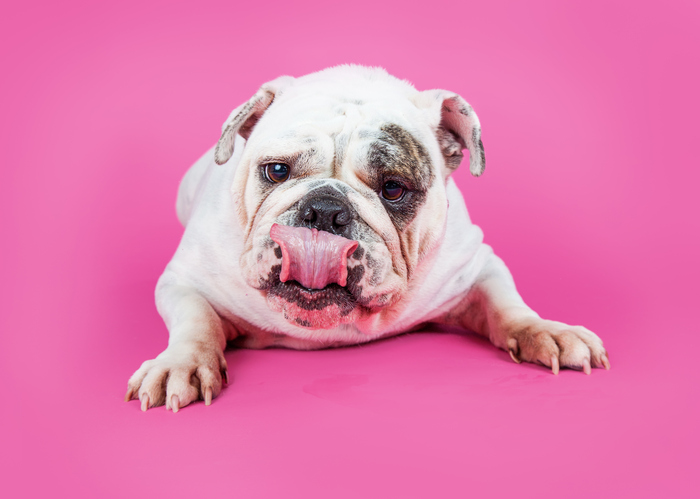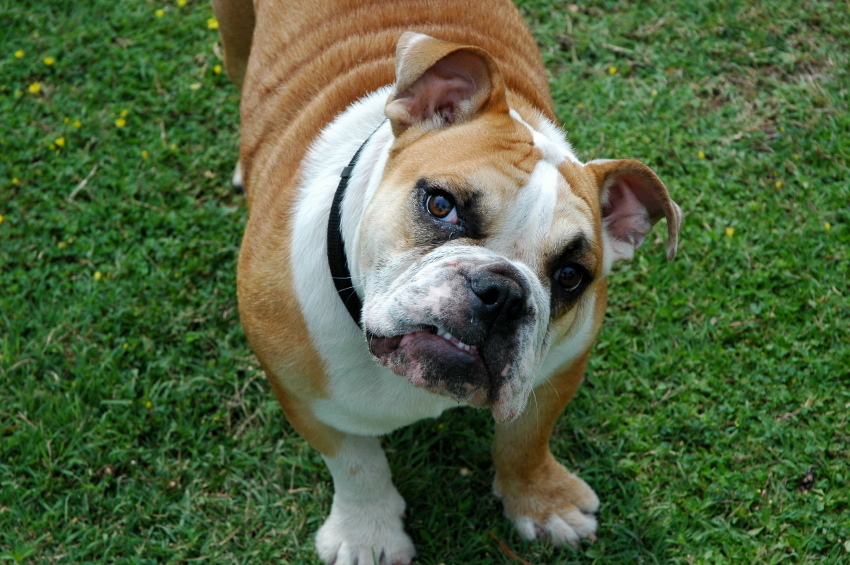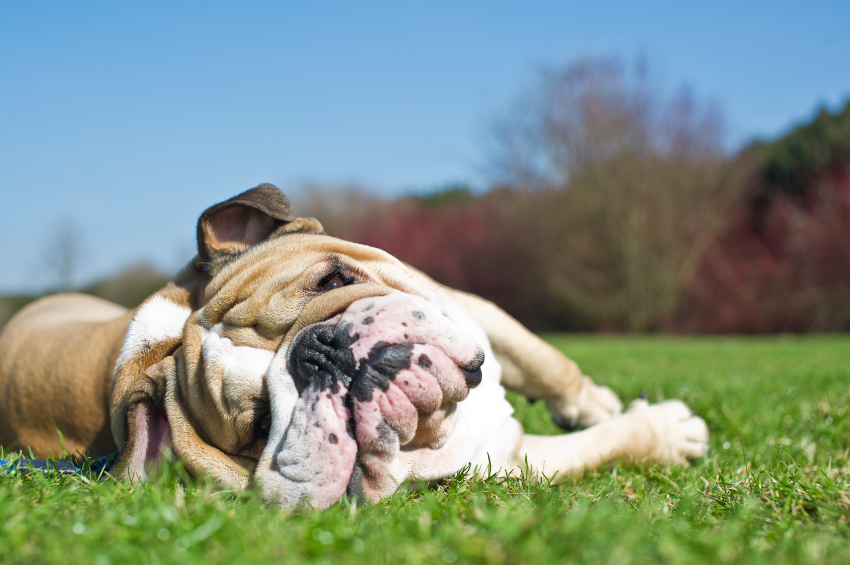What would you do if you see your Bulldog chewing paws incessantly? Exhibiting such behavior looks odd and it can also make your pet’s paws raw, sore, and painful. To stop your Bulldog from chewing his paws, you must learn the different reasons why they do it.

Anxiety May Be Behind Your Bulldog Chewing Paws
Anxious and depressed dogs have the tendency to display behavioral problems, such as chewing paws. They tend to over-groom themselves in an attempt to soothe their nervous system when their thoughts and feelings become too overwhelming.
Separation anxiety, lack of exercise, and stressful situations – having guests at home, fireworks – can cause your Bulldog to chew his paws.
How To Prevent
These issues can be addressed by doing the following.
- Making sure your Bulldog gets sufficient exercise.
- Have a designated “safe room” for your pet can also prevent him becoming stressed by uncomfortable social situations and fireworks.
- Give your Bulldog something he can play with to redirect his attention.
Yeast Infection Reason for Your Bulldog Chewing Paws
Yeast infection is a very common skin problem in Bulldogs. It can affect your dog’s body, ears, and paws. Trapped moisture is the most common cause of yeast infection in the paws. When this happens, your Bulldog’s paws become itchy, irritated, and smelly. Because the condition brings so much itchiness and discomfort on your pet’s paws, it can make him chew his own paws.
How To Prevent
You can stop your Bulldog from yeast-related chewing with the following tips.
- Clean your Bulldog’s feet after going out.
- Dip your Bulldog’s paws in peroxide-water solution twice a week.
- Dry your Bulldog’s paws after cleaning, bathing, or dipping.
- Try changing your Bulldog’s diet. Another option is to mix brewer’s yeast or apple cider vinegar in his food.
- Talk to the veterinarian about pet-friendly topical ointments for yeast infection. Make sure to put an Elizabethan collar on your Bulldog to prevent him from licking the ointment and chewing his paws.
Bulldog Chewing Paws Because of Allergies
Unfortunately, Bulldogs seem to be very prone to allergies. Your Bulldog may be allergic to specific food/ingredients, dust, molds, pollens, and a lot of other things. And consumption or contact with any allergen can cause skin irritation in your pet. These irritations often occur in the ears and in between the paw pads. When this happens, these parts may become terribly itchy – leading to nonstop scratching, licking, and chewing.
How To Prevent
Here are some tips to stop allergies that cause your Bulldog to chew his paws.
- Give him an antihistamine. However, talk to your veterinarian before giving your Bulldog any medication.
- Put your Bulldog on an allergy elimination diet to determine the food ingredient that causes your Bulldog’s skin issues.
- Take your Bulldog to the veterinarian to confirm that the issue your pet is having is indeed allergies. Discuss a good allergy treatment plan with the vet.
Parasites on Body Results in Your Bulldog Chewing Paws
Fleas, mites, and ticks can get stuck between your Bulldog’s paw pads. These parasites bite leading to itchy skin. As a result, your pet chews the area in an attempt to ease the itching.
How To Prevent
To stop the parasite-related itching, you can do the following tips.
- Check your Bulldog’s paws for ticks or fleas. Mites are microscopic and you need the help of a veterinarian to find out whether your pet has them or not.
- Get rid of any tick, fleas, or foreign object in between your pet’s paw pads.
- Consider giving your Bulldog oral, spot-on, or topical treatment for external parasites.
Why Your Bulldog Chews His Paws #5: Dry Skin
The air can be very dry during the winter and it can take moisture away from your Bulldog’s skin. In humans, lotions and skin oils work great in soothing the dryness. However, applying lotion or oils on your pet’s skin can be problematic. He may try to lick creams or any topical you apply on his paws.
Instead of putting lotion on his skin, it is better to mix fatty acids on your pet’s food a few times a week. Fish oil can help your dog’s skin and fur stay healthy and flexible.

